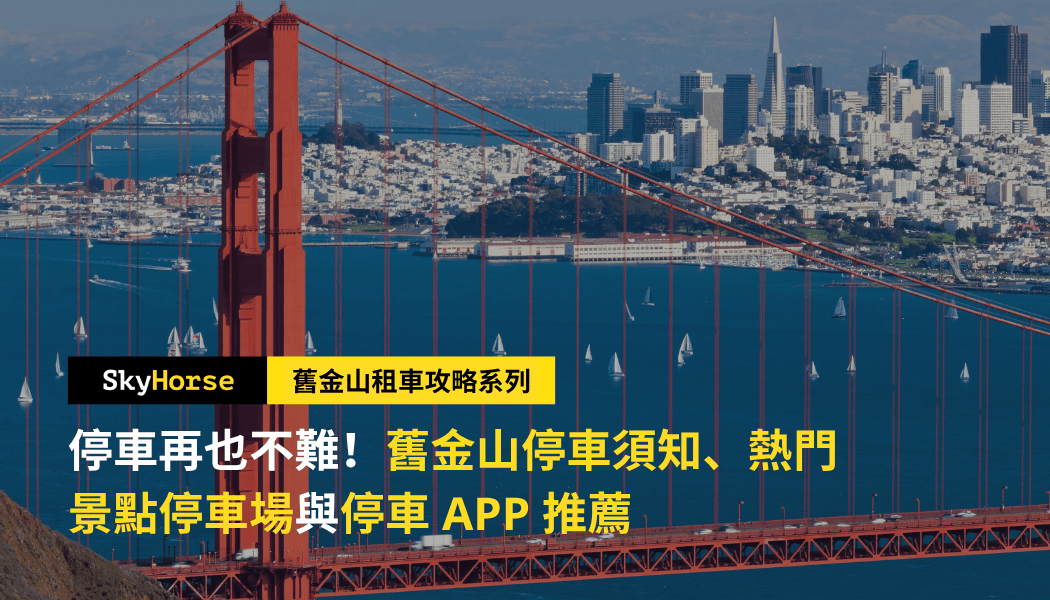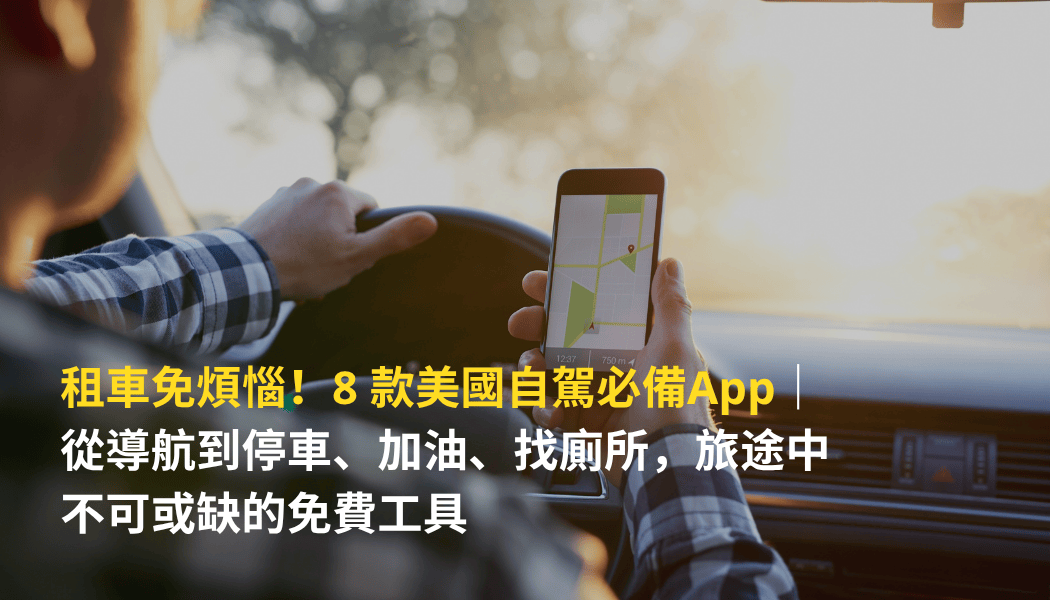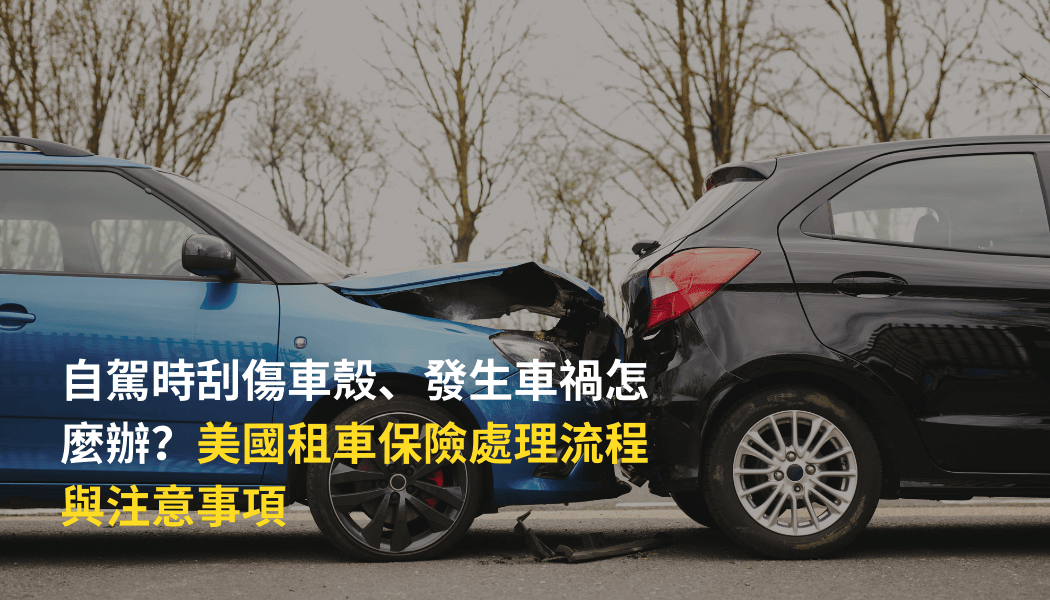
With the rise of self-help travel and the development of Internet information, renting a car and driving in the U.S. is becoming more and more popular. Not only can tourists enjoy the freedom and flexibility of traveling and exploring the city's alleys and remote spots, but also businesspeople on business trips and business negotiations can also adapt to random changes, making their itineraries more mobile and convenient. However, no matter how skillful you are when driving in an unfamiliar country, you may still be unfamiliar with the road, driving style, or unexpected conditions, which may result in a minor collision, a scratch on your car, or even a serious car accident.
In this article, we will introduce the types of insurance that will be used in the event of a car rental situation, the steps to deal with car accidents or abrasions, the insurance claim process and the points to note to avoid disputes. These details will help travelers to rent a car in the United States and drive with greater peace of mind, and even if they encounter an unexpected situation, they will be able to deal with it in a calm manner to ensure that the trip goes smoothly and without any worries.
U.S. Rental Car Insurance: Types of Insurance You May Need in the Event of an Accident
When renting a car in the United States, car rental companies usually offer a variety of insurance options to ensure that travelers are fully protected during their trip. Below are five common types of rental car insurance that are important in the event of an accident:
- Collision Damage Waiver (CDW): Generally used to cover the cost of damage to the rental car, such as collision, theft or vandalism. Some policies have a deductible, some do not cover theft, and some do not cover damage to tires, windows, windshields, chassis and other parts.
- Loss Damage Waiver (LDW): In addition to the CDW coverage, the LDW provides complete coverage for damage and theft, including theft, vandalism, and collision,Fire and Natural DisastersDamage caused by, among other things.
- Liability Insurance (LIS): Provides compensation for damage to vehicles or property, or personal injury or death in the event of a car accident. It should be noted that different car rental companies offer different terms and conditions, especially the maximum and total amount of liability benefits for individual items may vary.
- Personal Accident Insurance (PAI): Provides medical treatment or related compensation in the event of accidental injury to the renter or passenger. Most travelers have already taken out overseas travel medical insurance. Take Taiwan's PAI as an example, which is generally more complete and less expensive. If you have not purchased a comprehensive travel insurance policy in Taiwan, you may consider purchasing a PAI that focuses on automobile accidents.
- Personal Effects Coverage (PEC): This provides compensation if a traveler's belongings are stolen or damaged while in the vehicle. However, there is usually a limit on the amount that can be claimed, so you should always carry your valuables with you.
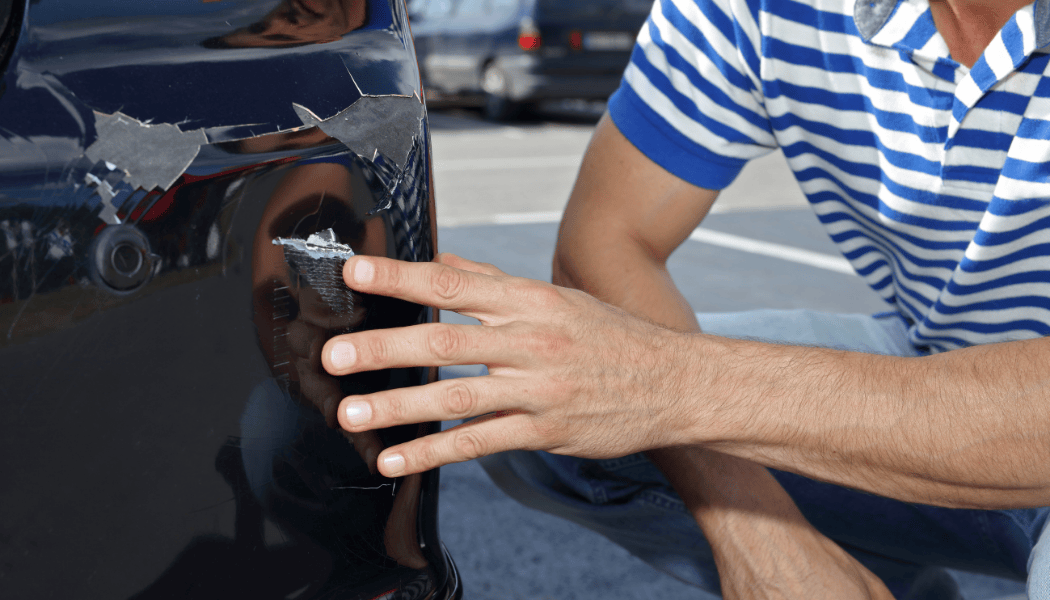
For a more in-depth understanding of the various insurance policies, please refer to this article:U.S. car rental insurance is difficult to choose, after reading this article a hundred times more peace of mind
🚧 A gentle reminder: When renting a car, be sure to pay special attention to the details of the insurance coverage and terms and conditions.For example, some of the more favorable car rental platforms offer prices that do not include insurance, or only provide basic insurance such as Rental Liability Insurance (RLI), which meets the minimum requirements of the law. However, for foreign travelers, this kind of coverage may pose a great risk in the unfortunate event of an accident.
In addition, some rental car companies offer insurance programs that require the driver to pay the rental car company first, and then submit the information to the insurance company to file a claim. Travelers need to communicate with foreign insurance companies in English, and it may take a long time to negotiate back and forth, which will cause inconvenience and high risk.
Steps to take after a car accident or damage to your car
Car accident, collision (involving another vehicle or person)
- Confirm the condition of the occupants of the vehicle and call 911 for medical assistance if there are any injuries
- Call 911 and contact the rental car company.
- Photograph and videotape (the more detailed and complete the better)
- Exchange of information with another party
In the unfortunate event of a car accident, the first thing to do is to calm down and make sure the driver and passengers are safe. If anyone is injured and needs medical attention, call 911 immediately for medical assistance. If the vehicle is still operable, move it to a safe location that does not interfere with traffic (such as the shoulder of the road) to avoid disrupting roadway traffic or secondary accidents.
Even if it's a minor collision, calling the police is often a necessary step to ensure that you get your insurance claim, especially if you are renting a car. The police will arrive at the scene to document the accident and issue a Police Report, which will be used for subsequent insurance claims. Even if the other party does not think it is necessary to report the accident to the police, please insist on contacting the police to keep an official record of the incident. At the same time, contact the rental car company to inform them of the accident, including the time, place and damage to the vehicle, and to confirm whether the vehicle needs to be replaced. If the rental car company offers Roadside Assistance, this will come in handy.
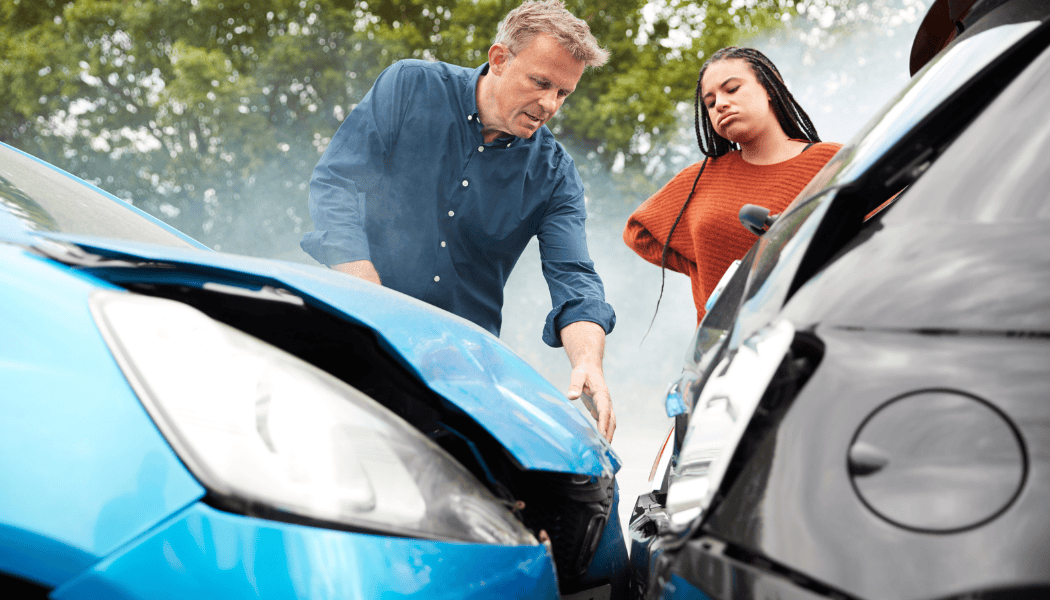
After the accident, as much as possible to take pictures, video record, record the situation, in addition to car damage, but also around the road signs, intersections, the location of the accident, as well as the other party's vehicle damage and license plate shot. If there are injuries, you can also leave a visual record to avoid subsequent disputes. Finally, even if it is a small accident, or should exchange information with the other driver, including the driver's name, driver's license number, license plate number, contact information, insurance company information, in order to follow up the insurance claims processing and responsibility for the accident.
Damage to the car itself (rubbed against a roadside wall, hit by a falling rock on the window, etc., not involving other people's cars)
If you accidentally hit a wall while backing up, or a small stone hits your window while driving on the road, you don't need to worry about compensation as long as your car is not seriously damaged. etc., this kind of situation does not involve other people's cars, as long as the car does not have too serious damage, and car rental with the introduction of collision insurance or collision theft insurance (CDW/LDW), basically do not have to worry too much about the compensation problem.
First of all, you should carefully check the extent of the damage to the vehicle. If the damage is only minor scratches or cracks, you can contact the rental company first to ask if immediate attention is required or wait until the vehicle is returned to assess the repair options. If the damage is more serious, such as a crack in the windshield that could spread, then you should contact the rental company to confirm whether the vehicle needs to be replaced or repaired immediately.
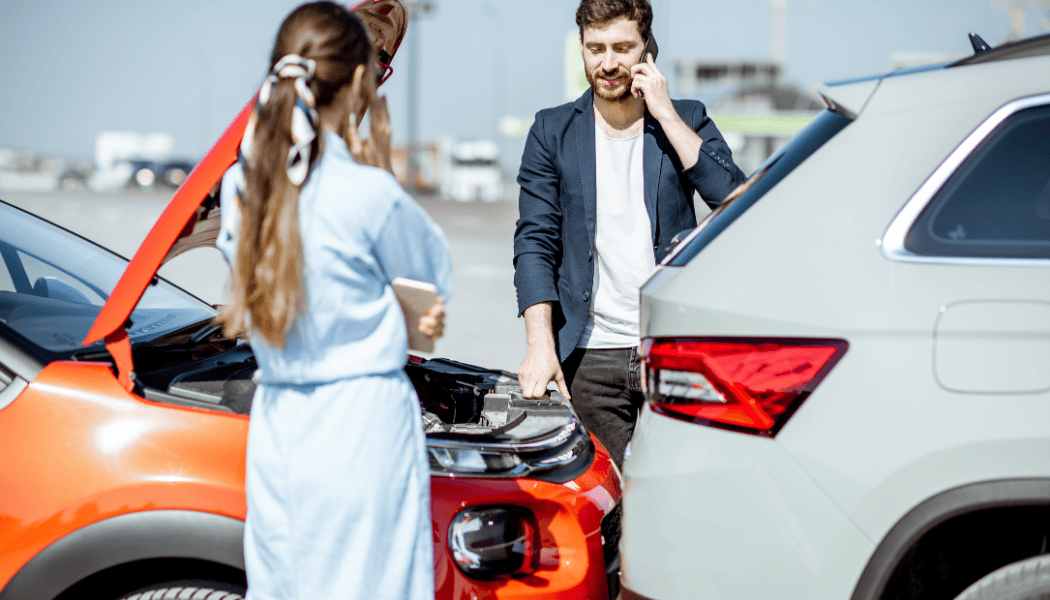
It is important to note that some insurance plans do not cover repairs to tires, windshields, and chassis. If these parts of the vehicle are not covered in the policy, the traveler will have to pay for the repairs themselves. Some car rental companies offer additional Tire and Windshield Protection, which you will need to take out when renting a car in order to receive a claim.
🚧 A gentle reminder:For example, with Sky Horse's car rental insurance, if you choose the medium-priced Plan B, you are covered for collision and theft damage up to US$35,000, so you don't have to worry about accidental damage. Free emergency roadside assistance is also available to help with common emergencies such as spare tire replacement, towing, battery activation, and unlocking.
U.S. Rental Car Insurance Claims Process
After an accident, in addition to contacting the rental car company, you may need to contact your insurance company to provide detailed information about the accident. The insurance company may require an official police report, the rental contract, photos of the accident scene, and supporting documents to assess the claim.
The insurance company will further investigate the liability of both parties involved in the accident to determine which party is responsible for paying the damages and whether a Deductible is required. If the damage is so severe that the vehicle cannot be rented out during the repair period, some car rental companies will charge a "Loss of Use Fee" or "Admin fee" as an additional fee for the rental company to deal with the accident. These additional fees are not reimbursed by insurance, so it is best to understand the company's terms and conditions before renting a vehicle in order to avoid the extra expense. Therefore, it is best to understand the company's terms and conditions before renting a car to avoid additional expenses.
As you can see, if you are unfortunate enough to be involved in a car accident in the United States, there are a lot of red tape and paperwork to deal with, as well as a lot of situations that require you to communicate in English. The advantage of renting a car from Sky Horse is that you don't have to worry about any of these things. In addition to full coverage and clear insurance details, you can also communicate with us in Chinese by simply using the LINE Connect with someoneWe will instruct and assist in the follow-up process.
🚧 A gentle reminder:In order to avoid the situation of not being covered by insurance, please make sure to drive by the driver listed on the insurance contract when traveling in the U.S. or on business trips, and if you have more than one driver, make sure to provide an addtional driver when renting a car, or else the insurance will not cover the claim when a situation occurs!
Points to Note to Avoid Accidental Disputes
Finally, a reminder for foreign travelers to avoid disputes with the rental company or both parties in the event of an accident while renting a car in the United States:
- Confirm the appearance and condition of the vehicle when you pick it up and take photos to record it.
- Confirm the content, coverage, and claim amount of the chosen insurance policy are sufficient
- After an accident, record the situation with video and photos, report to the police and leave the other party's information.
- Contact the rental car company and record or take a picture to prove it.
- When returning the vehicle, it is also important to take photos and videos to document the condition of the vehicle (exterior and dashboard) and to know how the rental company will handle the accident in the future, preferably with written documentation.
It is very convenient to rent a car in the U.S. for traveling and business trips, however, it is inevitable to encounter unforeseen situations when driving on the road. Through this article, we share the process of dealing with the situation and important rental car insurance information, hoping that travelers visiting the U.S. will be able to read this article to be calm and not panic in the event of an accident, so that they can not only be safe and sound, but also to ensure that they have their own rights and interests. More importantly, choosing Sky Horse, a transparent and honest car rental company with easy communication, will make the whole trip twice as easy, and even if you encounter a situation, you don't have to worry about it, it's like having a local friend who can lend a helping hand right away, making it easier for you to get around.Overseas contingenciesMinimize the impact on your trip!
